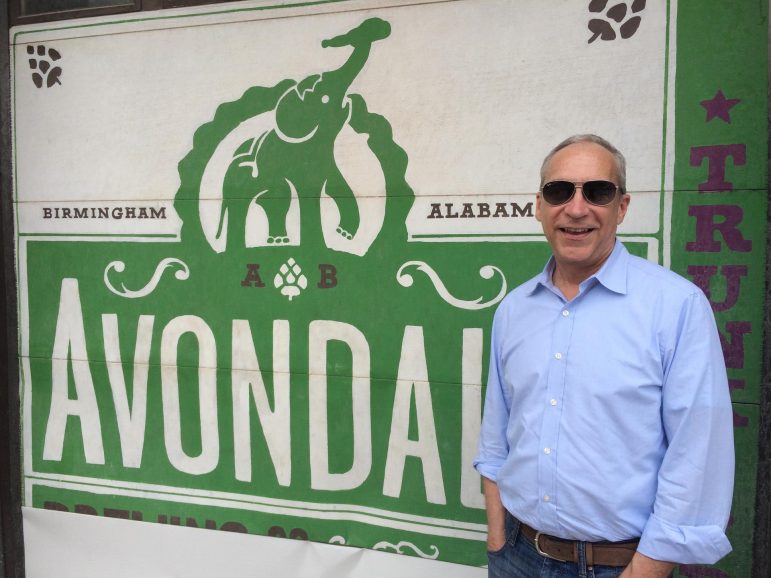Behind every new coffee shop and oyster house and once-vacant building is a real estate developer. The same goes for parks, condos and baseball fields. To understand how developers choose where to invest, start in Avondale.
Before the neighborhood had Avondale Brewery, or Melt, a grilled cheese sandwich restaurant, or Saturn, the city’s newest music venue, it had a car wash. Or at least it seemed like a car wash. Bob Vines, a commercial real estate broker and developer with Arc Realty, is known around here as “Mr. Avondale”.
“When I came down here, a bank hired me to sell a wand carwash. Not a drive-thru carwash. Where you drive in a spray your car down,” Vines says. “And what I realized, it was really a crack cocaine distribution place.
“So shutting down this operation where crack deals went down out of the back of a car became priority number one. Then Vines convinced Coby Lake to buy that property and tear down the car wash, which is about a block from where Lake later opened Avondale Brewing Company. Then a flood of development followed: restaurants, bars, music venues.
“I brokered real estate deals on all of them: Fancy’s, Melt, Rowe’s, Wasabi Juan, Wooden Goat, Satellite,” Vines says, “and it just all fell into place.”
“It” happened very quickly over the last couple of years. Vines says the economic recovery after the 2008 recession spurred a lot of that. Banks started lending to investors again. People were finally spending money.
“The restaurants all over Birmingham are full. I’m mean they’re full,” Vines says.
It wasn’t always this way. Birmingham was quiet, until about nine years ago when Urban Standard opened downtown on 2nd Avenue North, says David Fleming, president and CEO of REV Birmingham.
“We may not remember a day when no Urban Standard or a Rogue Tavern or El Barrio and Charm and all those great little Birmingham based things on 2nd Ave North,” Fleming says. “It was a very quiet street.”
That is, until those Fleming calls “forward-thinking pioneers” took a risk. Fleming says for the most part, those local developers have been the ones behind some of the early growth.
“Bigger developers that maybe come from somewhere else tend to need much more safety and security for that investment,” he says. “So once they’ve seen those pioneers do their pioneering thing, then the other investors come in and we have definitely seen that in Birmingham.”
Another thing that’s given real estate developers courage in recent years, local or not, is the other kind of development — the cultural stuff: Sidewalk Film Festival, Railroad Park, the 18th Street viaduct. Those things attract people, Fleming says, and more people bring more retail.
Across the street from the three-year-old Regions Field, there’s been lots of construction. There are condos and breweries and shops. Chip Watts of Watts Realty has owned and developed land in this area for decades.
He shows one of his properties, a building that in its previous life was where you’d go to buy prosthetics. Then it was a loft leasing office. Next tenant? The Peanut Depot. Warehouse in the back, retail peanut sales and beer growlers in the front. Watts says with Regions Field across the street, it makes perfect sense.
Watts says a few blocks away there will soon be a new grocery and a pizza place. But as all this is happening, the prices of these buildings and the land they sit on have gone up.
“You’ve seen about a 30 to 40 percent increase per square foot in sales, specifically on raw land in the area. In leasing, probably seen a 5 or 6 percent increase on lease rates,” he says.
The bigger jump in land prices, Watts says, is because there are lots of developers out there looking for land. Still, he says there’s plenty of room for growth. It’s just a matter of having a little courage, a little vision, and enough money to finance that vision.

